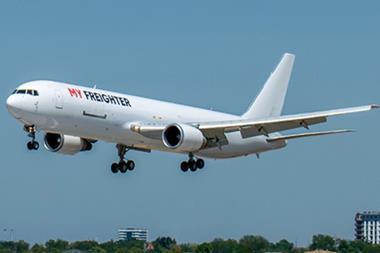Aviation regulators and Customs authorities are focused on implementing best practices to maintain a secure air cargo global supply chain without creating disruptions and delays.
The International Civil Aviation Organization (ICAO) and the World Customs Organization (WCO) have now shifted from the creation of an effective regulatory framework toward “the fostering of best practices in operations”.
That was the message from the ICAO-WCO joint conference taking place in Kuala Lumpur: Enhancing Air Cargo Security and Facilitation: The Path to Effective Implementation.
ICAO Council president Olumuyiwa Benard Aliu told ministerial and industry leaders: “We now have in place new provisions for supply chain security, high risk cargo, transfer cargo, and the selection of appropriate screening methods, and efforts are continuing to align these rules and guidance with WCO’s related provisions.”
Dr Aliu underscored that ICAO and the WCO must do everything they can to prevent the severe delays, disruptions and financial losses which can arise due to lapses in air cargo security.
“We are here today in order to support a vital and progressive air cargo industry. Above all, this means achieving the right balance between security and facilitation.
“The global economy and the livelihoods of a large percentage of the world’s population depend on the rapid and reliable transport of air cargo.
“Improving connectivity is a great catalyst for development, and helps to open up new markets, generate commercial expansion, create jobs and raise living standards. ICAO will therefore continue to be in the forefront of air cargo development, protection, and promotion.”
Dr Aliu was joined in Malaysia by ICAO secretary general Fang Liu who participated in the main panel discussion of the conference.
Both senior ICAO officials emphasised that the focus must now be on ensuring new regulations are implemented to the fullest extent possible, notably through on-going support from ICAO.
Dr Liu highlighted the role that ICAO can play in generating the political will among states to deploy the necessary structures and resources to contribute to the efficiency of the air cargo industry, including compliance monitoring, through its “outreach initiatives and its auditing system”.
She said: “We must also set out clear rules and guidance in national civil aviation security programmes. ICAO can also assist here, through our assistance to regulatory oversight system , as well as training and capacity building activities.”
She noted that ICAO can assist states as they review their physical infrastructure, some of which predates current concerns, and IT infrastructure, which is a risk factor given the increasing sophistication of terrorist operations.
Dr Liu also highlighted the value of coordination in realising a truly secure and efficient cargo supply chain: “It can only be achieved through a coordinated global, regional and national approach.”
She called for groups of neighbouring states, such as those in the Association of Southeast Asian Nations, to consult and work more closely while involving suitable industry groups.
“The same holds true for applicable ministries within individual state governments, and for international bodies such as ICAO and the WCO.”
Dr Aliu stressed: “We will explore ways of further strengthening the supply chain, encourage innovations in screening procedures and equipment, and do all that we can to support the move to electronic documentation and communication.
“Meanwhile, let’s make sure that the current rules are working in all 191 member states, and that the officials in those States are working with their regional or national counterparts in the 180 members of the WCO.”










